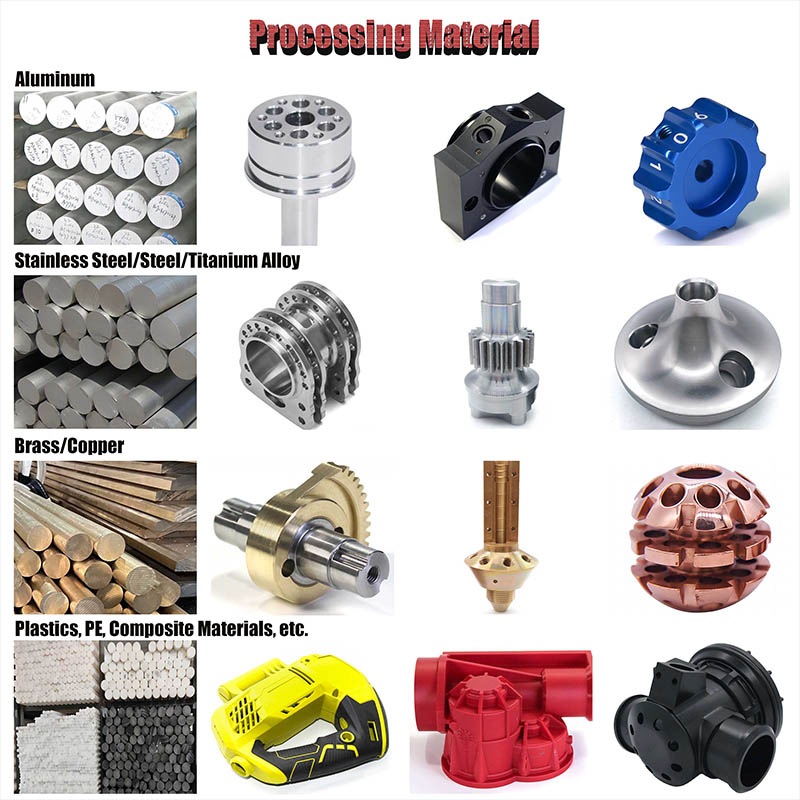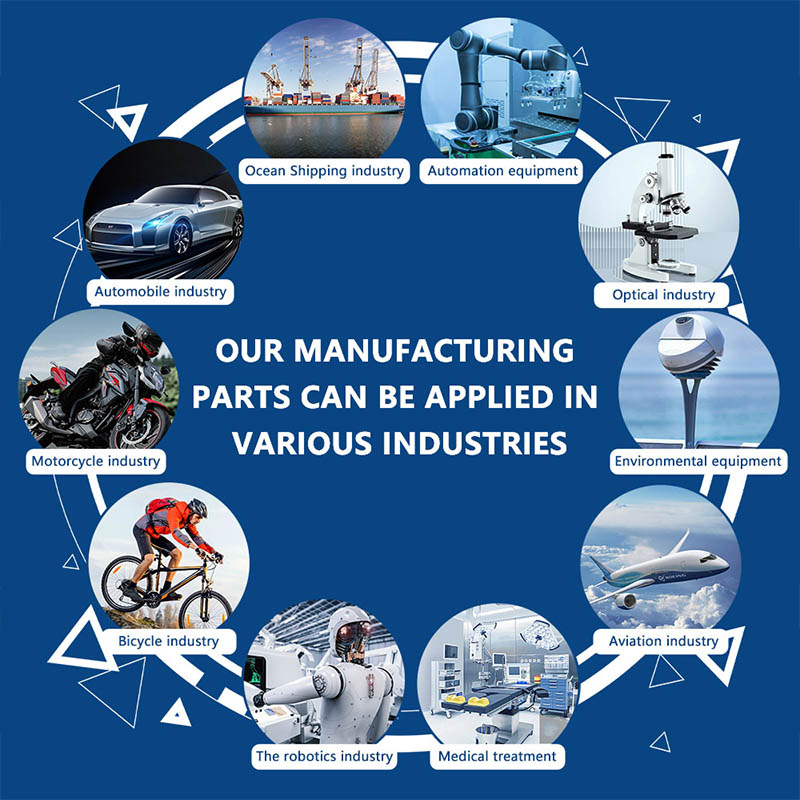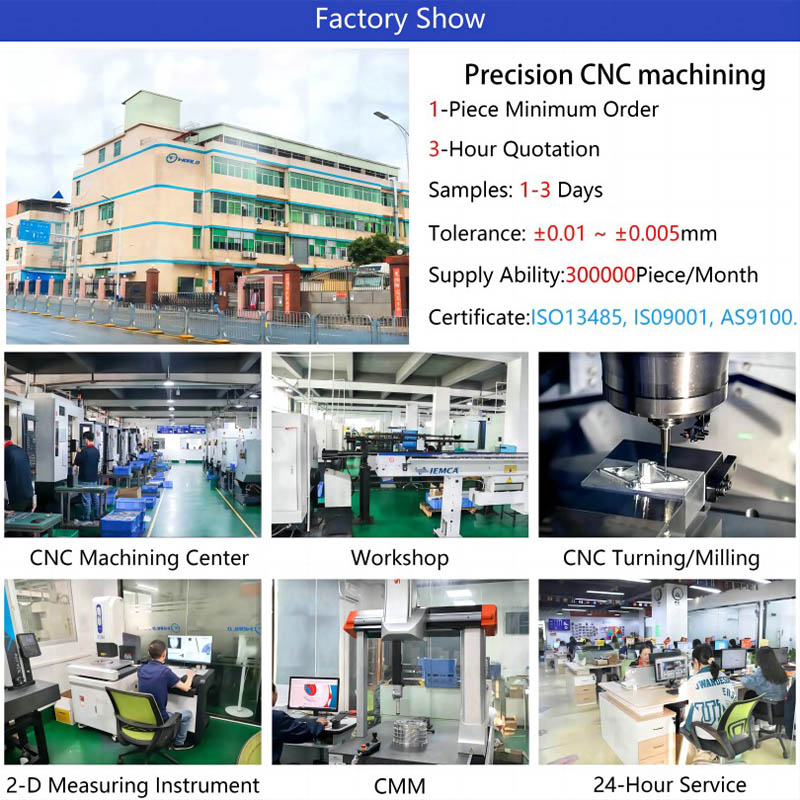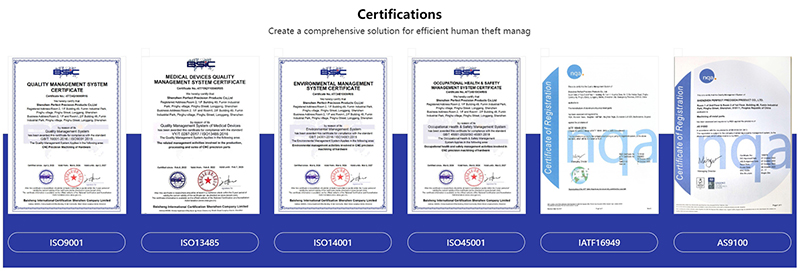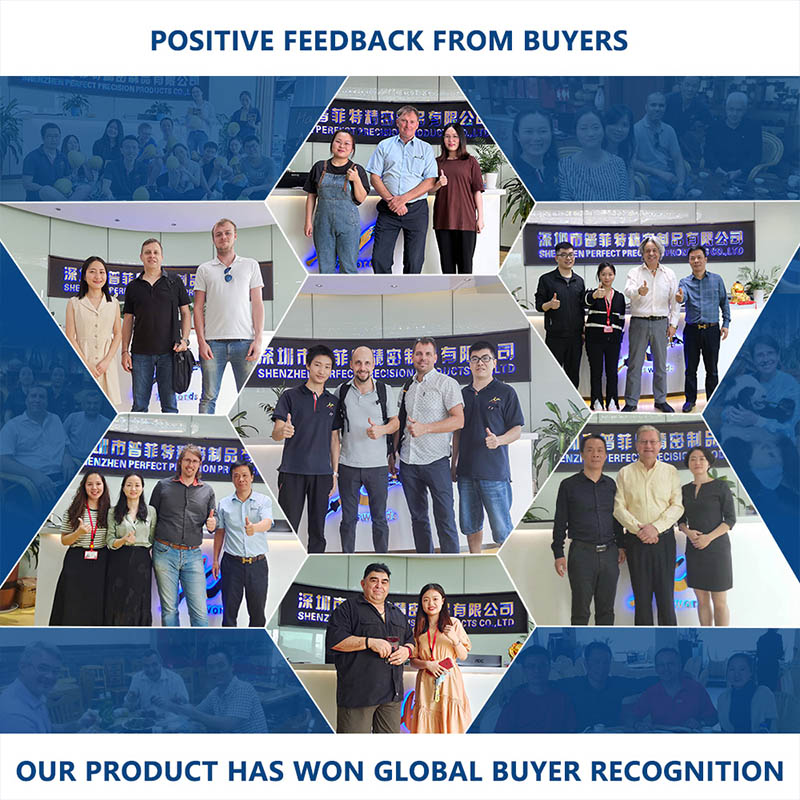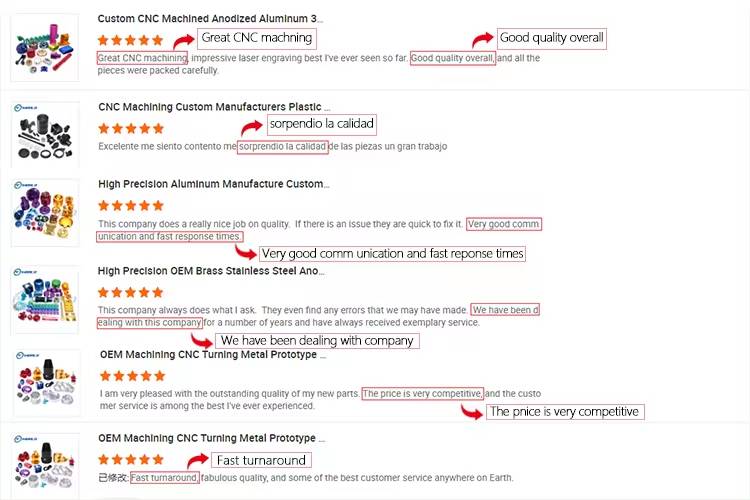High Precision Parts Manufacturer
What “High Precision” Really Means in Machining (and What It Doesn’t)
Many suppliers claim they can hold tolerances like ±0.005 mm, but in real projects, very few can do so repeatably. In our shop, for example, the typical stable tolerance ranges we maintain are:
| Machining Process | Stable Tolerance (Real Data) | Notes |
|---|---|---|
| CNC Turning | ±0.005–0.01 mm | Achieved using Mazak + in-process probing |
| 5-Axis CNC Milling | ±0.01–0.02 mm | Depends on tool length & part size |
| Grinding | ±0.002 mm | Often used for hardened steel shafts |
| Wire EDM | ±0.003 mm | Suitable for ultra-thin or complex profiles |
Many buyers only check a supplier’s capability list and machine photos, but the real test is process repeatability, not one-time performance.
How Buyers Actually Search: Matching Search Intent
When users search “high precision parts manufacturer,” the intent is usually:
1. Informational (How-to)
“How do I choose a high precision machining supplier?”
→ Provide a step-by-step guide.
2. Commercial / Transactional
“Where to buy precision parts?”
“Custom CNC precision parts manufacturer?”
→ Highlight capabilities, tolerances, materials, MOQ, delivery time, quotations.
3. Research / Comparison
“Which precision machining company is better?”
“Precision parts manufacturing review”
→ Provide third-party comparisons, QC data, process videos, tolerance charts.
This article integrates all three.
How to Evaluate a High Precision Parts Manufacturer
Step 1: Check Real Machining Experience, Not Just Marketing Claims
Ask for:
-
At least 3 past machining cases with similar tolerance levels
-
Material certifications (e.g., 17-4PH, 7075-T6, Ti6Al4V)
-
Surface finish photos under 500× macro lens
Case Example:
A medical client required a titanium locking screw with ±0.01 mm thread pitch accuracy. Their previous supplier delivered parts with out-of-roundness up to 0.03 mm. After introducing constant-temperature machining and in-process CMM verification, scrap rate dropped from 18% to 2.1%.
Step 2: Look at Their Process Control
Professional manufacturers show:
-
CMM full inspection reports
-
SPC charts for critical dimensions
-
Tool wear logs
-
In-process probing screenshots
A supplier without statistical control usually cannot maintain batch stability.
Step 3: Verify Their Equipment Setup
For high precision components, these machine types matter:
-
5-Axis Milling: DMG Mori, Haas UMC, Mazak
-
Turning Centers: Citizen Swiss-type, Star, Tsugami
-
Grinding: Okamoto, Studer
-
Metrology: Zeiss CMM, Mitutoyo profilometer
But remember—old machines + good calibration often outperform new machines + poor operators.
Step 4: Ask for Real Numbers on Defect Rates and Lead Times
A serious manufacturer can tell you:
-
Average on-time delivery: e.g., 96.2%
-
Average scrap rate: Below 3%
-
Standard prototyping lead time: 5–7 days
If they cannot provide data, they likely do not track it.
Common Failure Points in Precision Machining (and How to Avoid Them)
Over the years, I’ve seen recurring problems across new client projects:
1. Deformation of Thin-Wall Parts
-
Reason: high cutting force, heat accumulation
-
Solution: low-force cutters + segmented rough/finish strategy
-
Real result: deformation reduced from 0.18 mm → 0.04 mm after redesigning the clamping method.
2. Tolerance Drift in High-Volume Runs
-
Reason: tool wear not monitored
-
Solution: auto-tool measurement + SPC
-
Result: tolerance consistency improved from 72% to 98%.
3. Surface Finish Defects
-
Caused by improper coolant ratio or tool nose radius
-
Solved by adjusting coolant from 3% → 7% and upgrading to 0.4 mm radius insert.
Practical experience like this sets real manufacturers apart from traders.
Technical Capabilities of a Reliable High Precision Parts Manufacturer
Below is a capability summary that aligns with buyer search intent (transactional queries):
Materials we commonly machine
-
Aluminum: 6061-T6 / 7075-T6
-
Stainless steel: 304 / 316 / 17-4PH
-
Titanium: Ti6Al4V
-
Alloy steel: 4140 / 4340 / tool steel
-
Plastics: PEEK, PTFE, Delrin
Surface finishes
-
Anodizing
-
Hard anodizing
-
Nickel plating
-
Sandblasting
-
Grinding (Ra 0.2–0.4 μm)
Typical order quantities
-
Prototype: 1–10 pcs
-
Small batch: 50–500 pcs
-
Mass production: 1k–50k pcs
Industries served
-
Automotive
-
Robotics & automation
-
Medical
-
Aerospace
-
Consumer electronics
Comparison: In-House Manufacturing vs. Non-Manufacturing Suppliers
| Item | Real Manufacturer | Trading Company |
|---|---|---|
| Process control | Strong | Weak |
| Tolerance stability | High | Depends on subcontractors |
| Cost | Competitive | +10–30% margin |
| Communication efficiency | Direct | Slower |
| Lead time | Predictable | Unstable |
For precision parts, working with direct manufacturers is almost always the safer choice.
Application
FAQ
Q:What’s your business scope?
A: OEM Service. Our business scope are CNC lathe processed, turning,stamping,etc.
Q.How to contact us ?
A:You can send inquiry of our products,it will be replied within 6 hours;And you can contact dirrectly with us through TM or WhatsApp, Skype as you like.
Q.What information should I give to you for inquiry?
A:If you have drawings or samples,pls feel free to send us,and tell us your special requirements such as material, tolerance, surface treatments and the amount you need,ect .
Q.What about the delivery day?
A: The delivery date is about 10-15 days after receipt of payment.
Q.What about the payment terms?
A: Generally EXW OR FOB Shenzhen 100% T/T in advance,and we can also consult accroding to your requirement.



